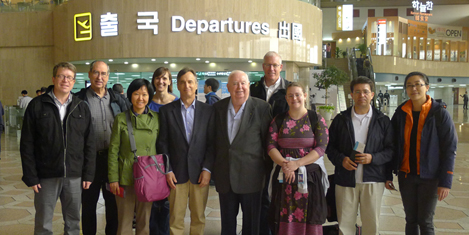
Delegation Visits
Until the program was suspended in 2020, Foundation delegations visited the DPRK twice annually to deliver medications and supplies and to help with patient diagnosis and treatment. On each trip, the delegation visited all twelve of the treatment centers assigned to the Foundation by DPRK health authorities in the western half of the nation.
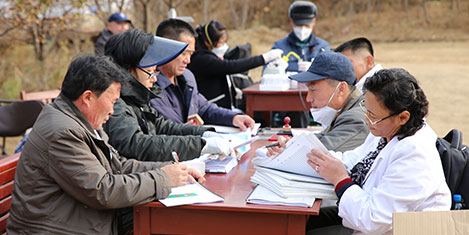
Diagnosing Patients with MDR-TB
On regular visits to local treatment centers, Foundation delegations collect sputum samples from everyone registered in the program as well as new patient candidates who failed treatment for non-resistant TB. All samples are tested using GeneXpert diagnostic equipment brought by the delegation. Those newly diagnosed with MDR-TB are enrolled and provided with the medications needed to initiate treatment for MDR-TB.
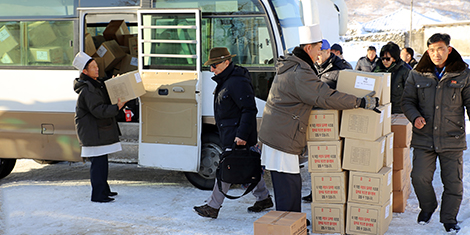
Delivery of Medications and Supplies
On regularly-scheduled visits, Foundation delegations deliver the equipment, medications and supplies needed for treating MDR-TB directly to all medical facilities assigned to the MDR-TB Treatment Program.
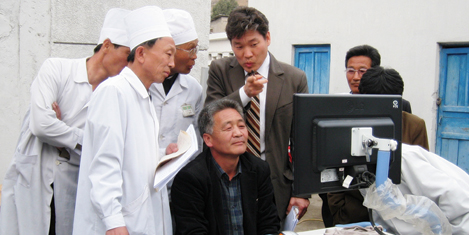
Treatment Regimen
In addition to the World Health Organization’s recommended regimen for treating MDR-TB, the Foundation also supplies all registered patients with nutritional assistance.
Dr. KJ Seung, who co-authored the World Health Organization's Field Guide for the treatment of multidrug-resistant TB, serves as the Foundation’s Medical Director.
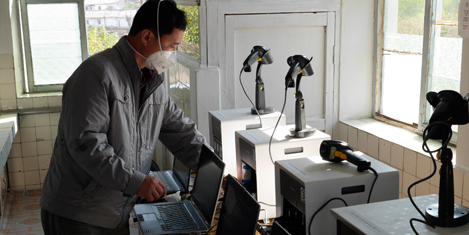
Advanced Technology
The Eugene Bell Foundation uses GeneXpert diagnostic equipment, state-of-the-art technology that makes it possible to determine on-site whether someone is infected with multidrug-resistant tuberculosis. This simple test takes only 45 minutes, making it possible to immediately start patients on treatment.
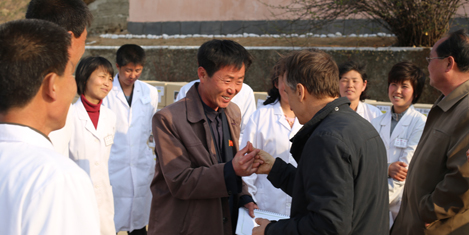
Relations with the Democratic People’s Republic of Korea
The Eugene Bell Foundation works closely with the DPRK Ministry of Public Health.






